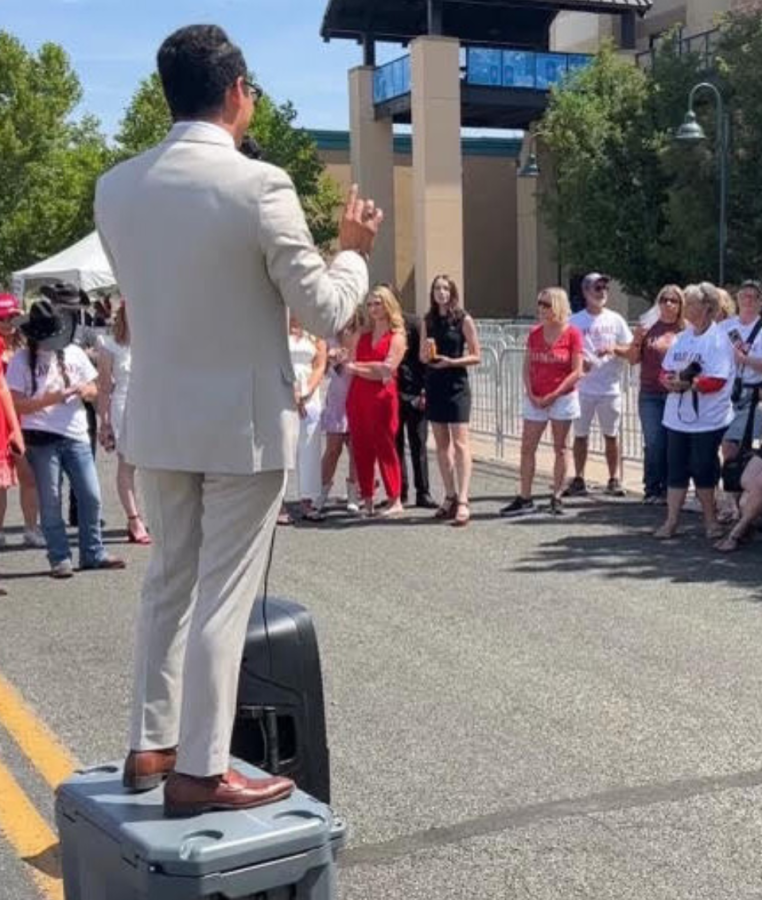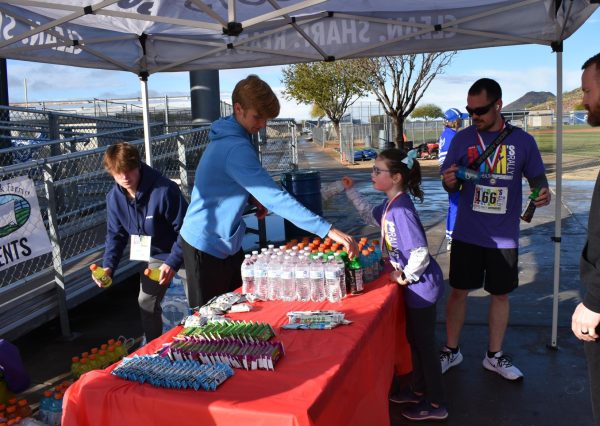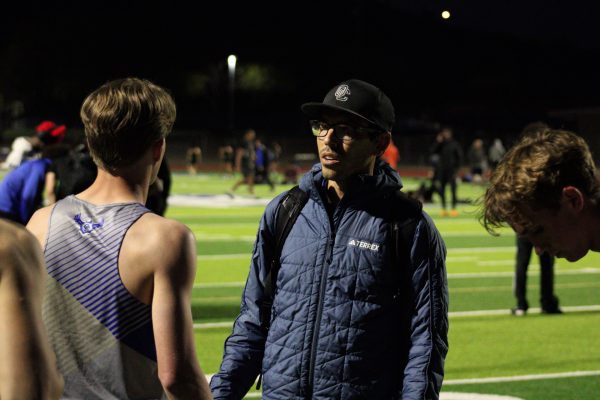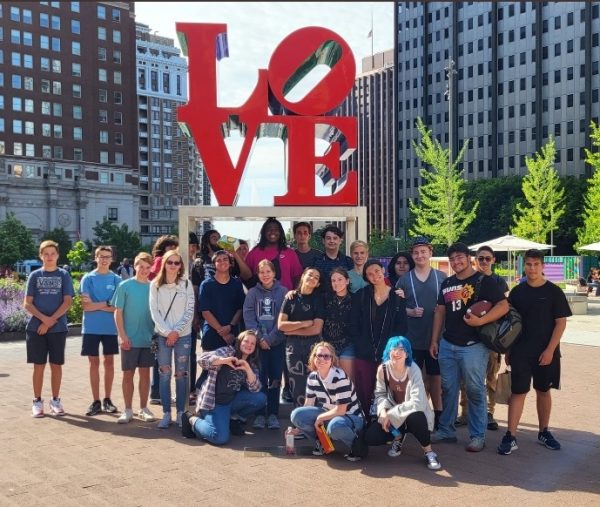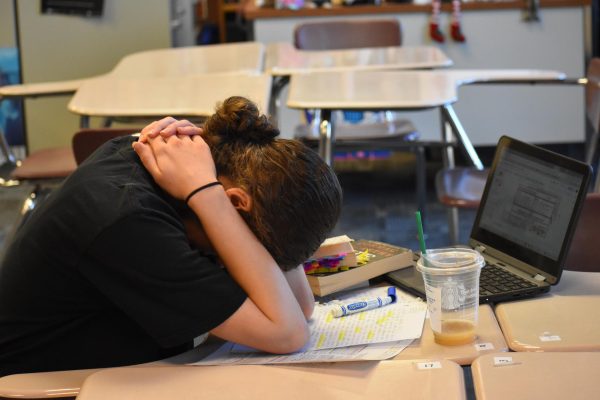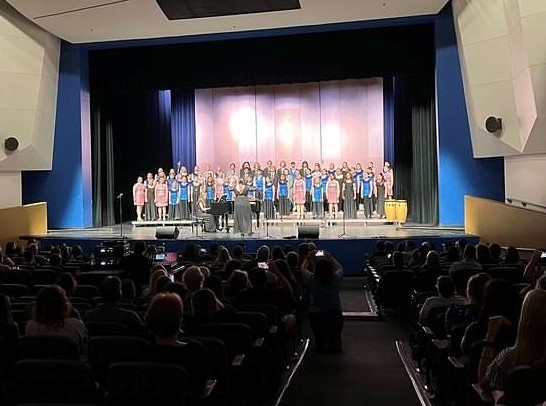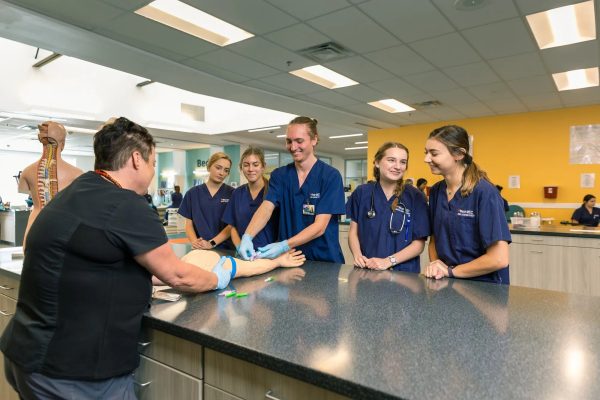The political generation breaks barriers
Photo courtesy of Bobby Bushcraft
Matthew Martinez, field director, instructs hundreds of eager volunteers during a rally.
November 2, 2022
The political arena plays a huge role in America’s social, cultural, and economic values. Politics mold the American community, and within recent years, has become a focal point for the United States’ young people. Whether youth engagement is demonstrated through the support of candidates, or the advocating of issues, students have become hyper-focused on conflicts our nation is facing, and more importantly, how they can make an impact on the world they are living in.
Politics have become exceedingly more inclusive to the upcoming generation, with political figures placing more value on dedication and work ethic, rather than age and experience. Matthew Martinez, the youngest field director in America who worked for Kari Lake starting at age 20, as well as former Director of Youth Engagement for President Trump, notes that his age played no role in his job position.
“Kari didn’t even know my age. She thought I was twenty-five or so. She doesn’t care about age, all she cares about is if you have a passion for this state,”Martinez said.
No matter the age, young students can be put to work to help increase their political experience and deepen their understanding of the world of government. Arturo Whipple, former West Valley Youth Coordinator for President Trump and intern for gubernatorial candidate Kari Lake, as well as the youth director for LEXIT (a movement centered around Latino involvement in politics), reflects on his role while working for Kari Lake as a senior in high school.
“When people would go canvassing, I’d write different scripts based on the regions people were going through. I did a lot of data analysis and I worked in social media,” Whipple said.
The interest in politics is evident, yet the reasoning behind each individuals’ captivation on government is very subjective.
“What got me into politics was the 2016 election. There were tons of different perspectives to look at and I was able to find my own. I was so passionate that I became an activist,” said Arturo Whipple, senior.
2016 played a major role in the uprising of youth in politics, and not only pushed young people to be involved in their government, but to understand it on a deeper level and become educated.
“After [the 2016] election, I was fighting for the Republican cause at my high school. I was joining every other group I could join just so I could enlighten and teach others. I remember even joining Democrat clubs. I wanted to develop my political understanding, not just for the Republicans, but I wanted to know what Democrats thought,” Martinez said.
The ability to have a conversation is a vital aspect to the world of politics that is so lost today, making it something the upcoming generation must rectify to be successful.
“There’s a few things I would tell people my age. One of them is to be open-minded. Even if you are a strong Republican, it’s okay to challenge your mind in conversations. It’s good to hear both sides,” Martinez said.
Morality often plays a significant role in political opinions, and influences not only the way young people think, but the way they vote. Depending on the background of the person, the political view of that person can fluctuate.
“I have values that are totally about the individual and about family. The largest reason I have to feel those values is because I am a Mexican-American. I grew up knowing that hard work and ambition could lead to success,” Whipple said.
Feeling as though morals are under fire can be an additional reason for the increased engagement America’s youth has in the political realm, and forces those who have ideologies that are in question to get involved.
“There used to be an idea that if you had personal sacrifice then you would have personal gain. Society now believes in sacrifice of the individual for group gain. The idea that you are not in control of your own destiny is very dangerous because it forces people to no longer care about themselves and their families, and pushes a nihilist view of our future,” Whipple said.
The idea of protecting the people of America is a key component to the increased engagement in politics, and holding those in power accountable is a necessity every generation can clearly see. When discussing a spiritual experience Matthew had that led to his deep-dive into government, he had this to say about his purpose within the field.
“What I was told to do is to spread light into the darkness of the government and to poke holes into it, and here I am,” Martinez said.
But being involved in politics is much more than a small social media post. It’s about being involved in the community and making a difference.
“[My internship] told me there aren’t as many kids that are as active as they would like to think. If you are truly passionate about your views, then you will go out into the real world, the youngest you can, and start making a difference,” Whipple said.
Serving in politics is rewarding, yet comes with a unique set of challenges. Despite the adversity faced when serving as a young political voice, the bigger picture is much more important.
“Integrity is the most important thing when it comes to having beliefs in a political philosophy. It’s being able to defend and being confident in what one believes in. As much as I wanted to have those friends, I value my beliefs and integrity much more than a few friends that I had when I was younger,” Martinez said.
Entering into the political world can be daunting, but the reward of making change makes the challenges faced worthwhile.
“If you are able to be brave and courageous and someone who speaks for themselves and the people they care about, then you can make a real impact on the world,” Whipple said.



